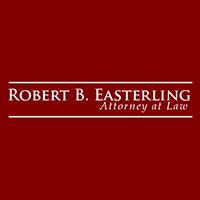Richardsville Bankruptcy & Debt Lawyer, Virginia
Robert Bruce Easterling
✓ VERIFIEDBankruptcy & Debt, Bankruptcy, Estate, Trusts, Wills & Probate
Robert B. Easterling, Attorney at Law, in Fredericksburg, Virginia, offers legal services, specializing in bankruptcy, wills, trusts and estate planni... (more)
Darren C. Hickman
Business Successions, Business Organization, Collection, Contract
Status: In Good Standing
FREE CONSULTATION
CONTACTRobert John Barlow
Adoption, Alimony & Spousal Support, Bankruptcy, Corporate
Status: In Good Standing
Justin Scott Mcleod
Collection, Family Law, Wills & Probate, Landlord-Tenant
Status: In Good Standing
Anthony Charles Williams
Divorce & Family Law, Criminal, Bankruptcy & Debt, Accident & Injury
Status: In Good Standing


